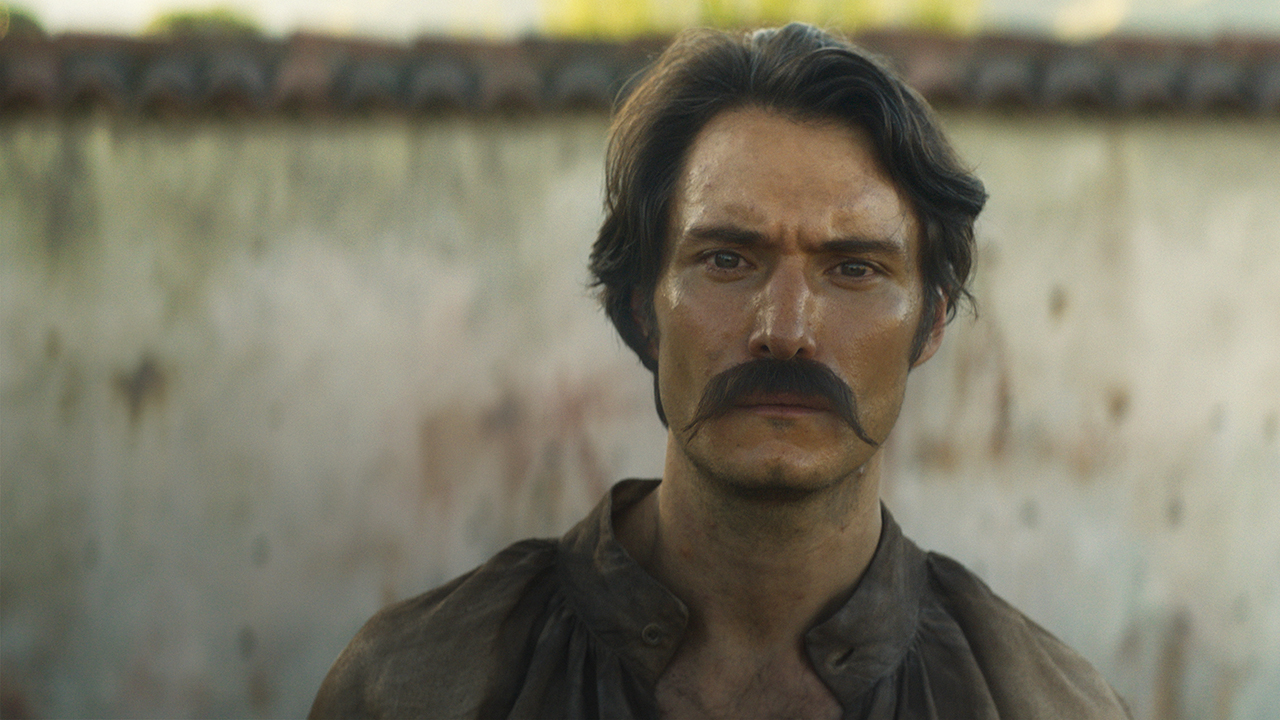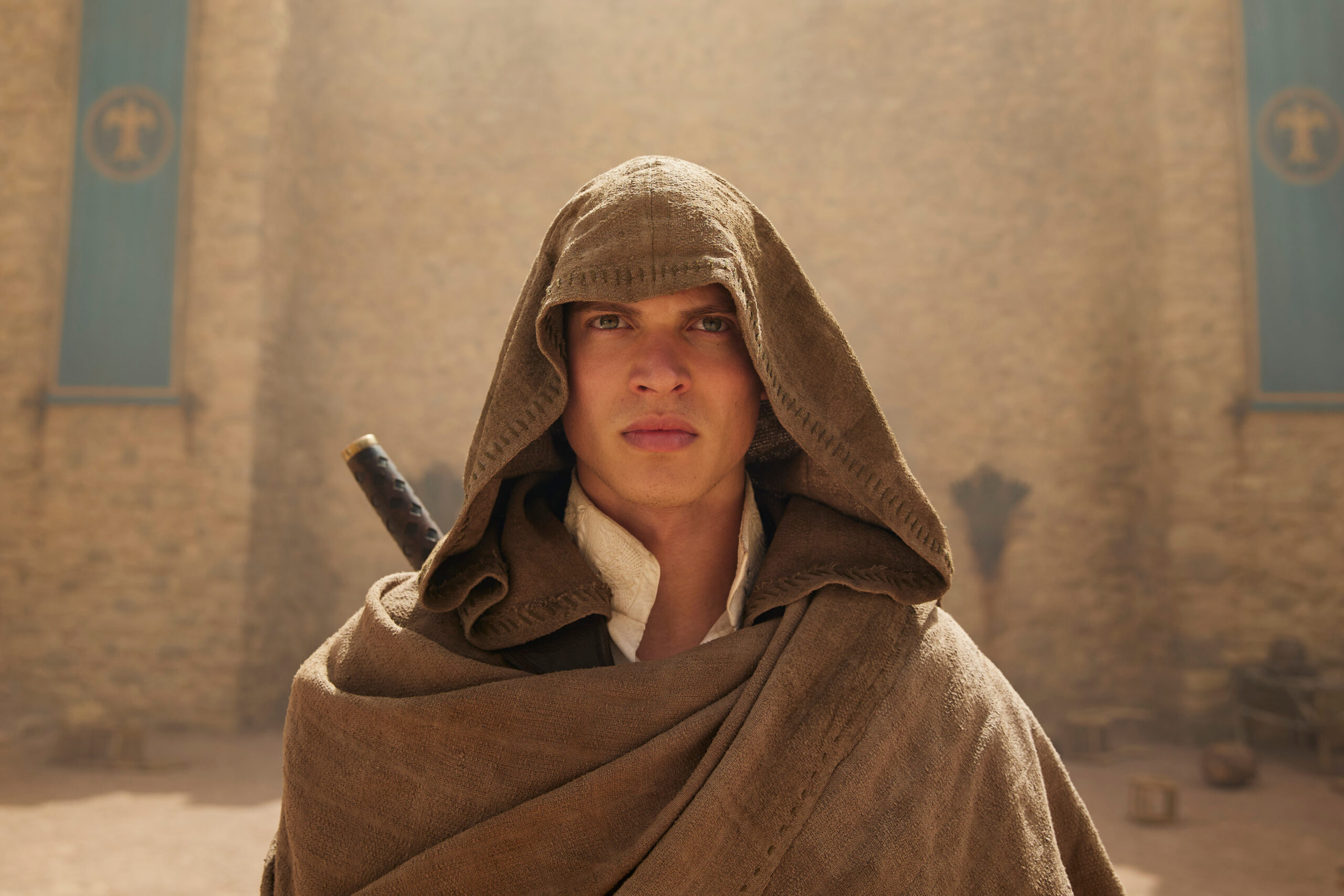![]() In one of the late Paul Walker’s final movies, some critics hailed “Hours†as an effective emotional acting performance for Walker’s career.
In one of the late Paul Walker’s final movies, some critics hailed “Hours†as an effective emotional acting performance for Walker’s career.
The film is about a father who was abandoned with his newborn daughter in a hospital after Hurricane Katrina struck New Orleans. The father must keep the baby alive by manually operating the respirator until help arrives.
Latino-Review interviewed “Hours†director Eric Heisserer via telephone after Walker’s passing earlier this month. We briefly discussed about Paul Walker in one of his final performances. We also talked about the plot, backdrop, Genesis Rodriguez and Heisserer’s directorial debut. And for fun, we talked about his start with tabletop games such as Cyberpunk and Dungeons & Dragons.
“Hours†is in limited theatrical release and also available on VOD.
Read the transcript interview below.
Latino-Review: Despite with what’s been happening, why don’t you go ahead and put out the first word to start us off on Paul Walker?
Eric Heisserer: I can tell you what I can reinforce that everybody has been saying about him. I worked with him. I find him as an incredible human being. [He was] a genuine good guy. He always showed up to work. He was on time, which is a huge thing with talent. [Laughter] [He was] well liked; knew the names of my crew; and was always patient. So many times in this indie movie, we had to stay late with one day leading into the next. I never got a complaint from Paul. He was fully committed on the project. He was tireless as was his character. He made everyone to try to step up their game.
Latino-Review: How did you get the idea for this movie then?
Eric Heisserer: Well, I lived in Houston for over a decade and had a lot of friends lived in New Orleans, Louisiana. New Orleans had always been for me a town that you could always go to celebrate anything. It was a personal loss when Katrina came through and ravaged it. I had a lot of friends who were refugees and had to stay at the Astrodome in Houston after being kicked out of Louisiana from the storm.
So I heard a lot of personal anecdotes from them. The experience that did not necessarily made the news. Those stories stuck with me for many years. I didn’t know what to do with them for quite a while until many years later that a friend of mine talked about his fears he had as a new father. He was trying to grapple with that and the worries about he had with his newborn child. Something with that clicked with stories about the doctors and nurses at Charity who manually cranked the ICU equipment. I put those two things together to come up with the story of Nolan.
Latino-Review: Did a lot of the stories, particularly revolving around the hospital, was that straight out of the news clips?
Eric Heisserer: A lot of them were or a personal anecdote. One of my friends had a portable shower service. He ran it for some of the relief workers there. He talked about a rescue dog had been stranded from the flooding and sort of bonded with an elderly couple there. It was the dog that caught the attention of the relief workers and rescued them. That was the inspiration for Sherlock in the movie.
And there were 12 to 15 other stories that all formed the larger narrative of the hospital and the story for “Hours.â€
Latino-Review: Talk about the hospital itself. I understand you didn’t film this on a stage, but an actual hospital.
Eric Heisserer: It was an actual hospital in New Orleans. It was not used since Katrina. It was the Methodist Hospital in East Orleans. The entire first floor had been gutted to try to get rid of the black mold. The one set we had to build there on location was on the first floor. [We had] to create a lobby since there wasn’t really a lobby left in that building.
And that was strange because here you’re building that had been abandoned since the hurricane to make it as the backdrop of your movie. Plenty of set decorations were just left there at the hospital, including lots of equipment there. We found a wall calendar that had the date of August 29th, 2005, still hanging just like that. That image right there managed to work its way into the final cut of thefilm.
It was kind of scary and creepy too, because you can imagine filming in an abandoned hospital that you’re in the moment. [It was] covering a story about this man trying to be a good father. But in between takes, if you go a little bit this way or that way or to another floor, then suddenly you’re in a horror movie all by yourself.
Latino-Review: Does this give you some ideas for a future movie?
Eric Heisserer: [Laughter] I don’t know if I want to [since] having lived that myself on if I want to write about that part. No.
Latino-Review: Let’s talk a little bit about your casting. I know we talked about Paul Walker, but what made Paul Walker so attractive for this film?
Eric Heisserer: After my first meeting with him, I realized he had a personal connection to the movie. He had a memory of his daughter’s birth that didn’t go completely smoothly. There were some scary moments during her birth for him. [There were] a lot of fears bundled up in that. He recalled vividly whenever he thought about this character. He understood this sense of how being a parent, especially a first time parent, was a testament to endurance than anything else. It was a test of your constitution in ways that we haven’t been tested before. This was very an external version of that.
He connected with that. From that, I could tell he had something to prove, not necessarily to the world but to himself. [It was] to work in some new muscles and to be more of the actor he wanted to be rather than the actor he just sort of stepped into to pay the bills for so long.
Latino-Review: Latino-Review: Yeah, I noticed that this movie showed the greatest range of his acting abilities in his career. But mostly, it was just a movie basically—just with him. Was that difficult to direct?
Eric Heisserer: Sure. It was difficult to direct and it was difficult to write. You had to draw upon a lot of unique sources. Stage actors had done this for quite a while with monologues. He had to speak to a little baby that can’t talk back to him. All the usual tools that writers and filmmakers had for subtext doesn’t necessarily apply to this movie which means we had to get more creative with that.
There were a lot of challenges to try to make it work for the story. A lot of that we had to rely upon Paul’s performance.
Latino-Review: So what was the one greatest challenge that you had to try to overcome with the setting, story and everything else? What was the greatest challenge?
Eric Heisserer: It was the balance of tension and realism. We had to be sure that we had the suspense that worked to tease the viewer. That it also felt authentic to the audience—at least emotionally authentic. That was the real delicate dance, because you had to let go of the idea to make it a straight up thriller. With that, you can lose out on so much heart and lose out on the purpose of the journey.
You didn’t want it to be a relaxed type of story. We had to work on what kind of time limit that worked best for this kind of narrative.
Latino-Review: Besides Walker, the only other main character was from Genesis Rodriguez’s character in the film. Could you talk about her and her little brief moment in the film?
Eric Heisserer: Sure. I would love to talk about her. She was just amazing. She worked her own brand of magic in this movie. As I sat down with her to talk about this role, despite the fact that Paul’s character carried the movie, she’s really the most important character in the film. Everybody has to fall in love with her and emphasize with her even though she’s not going to be there for more than a few scenes in the film.
She was so up to task. She’s this great blend of strength, femininity and moxxy. I think it just sizzles on the screen so it’s real to have that. I loved the chemistry that she and Paul had. It made it very easy for me to direct them.
Latino-Review: You wrote many movies that you contributed to like “The Thing,†“Final Destination†and “A Nightmare on Elm Street.†This is quite a different direction for you, is it not?
Eric Heisserer: It is.
Latino-Review: So why did you go basically from the action-paced type of horror and immediately went into a drama such as “Hours?â€
Eric Heisserer: Like Paul, I felt like I had got my feet wet with those commissioned jobs. Now that I was able to pay the rent, I can work on my own stories. I grew up, but I don’t know how old you are Gig…..I grew up when writers and directors were not in a monogamous genre. They would jump around to tell a drama one year and then a sci-fi movie the next or a horror movie directly after that. I had the same kind of love for all movies for a while.
For now, you are put on a train and sort of [traveling] on those tracks. Typically, [you are on those tracks] until you do something on your own. That will show that you’re capable of something else. That’s what I wanted to do with “Hours.†I’m not just a franchise horror writer and that I like to do other things. That’s why I’m out here in the first place.
Latino-Review: So how the overall experience was since this is your directorial debut? And if you are going to direct again—would you do something similar to this? Or maybe it might be time to go back to that horror genre?
Eric Heisserer: I want to say that I’m opened to all genres, including horror. There’s a project I’m working on right now called “Bird Box.†It’s phenomenal and I think it’ll be great project for any director.
Being my first time as a director, I understand the phrase that “you survived your first movie.†It’s the most brutally rewarding experience I had. I say this without no small amount of masochism, but I would do it again. Largely, it comes from knowing the lessons that I’ve learned in this first movie. Typically, in the first movie you can learn from the mistakes while you’re still learning on how the process works. It feels better to go and used those to better affect things the next time around.
Latino-Review: I read in your biography that you used to write for table top games. Just out of curiosity, what kind of table top games?
Eric Heisserer: [Laughter] You read my biography! You’re the first guy to do that. Nice!
I wrote for a table top game called Cyberpunk that was in the world of the William Gibson and Neal Stephenson novels. I did a little freelance work for Dungeons & Dragons. It’s a popular title that everyone knows as D&D.
Latino-Review: I used to write modules for Dungeons & Dragons in the 1990s myself.
Eric Heisserer: You did? Awesome! [Laughter]
Latino-Review: Once in a while Peter Adkison flies me out to Indianapolis to help out at his convention called GenCon. [Laughter]
Eric Heisserer: Aw, man. That’s the best.
Latino-Review: Did any of that experience from tabletop writing transit into the film industry for you?
Eric Heisserer: Certainly. God, yes! The two facets I had right there—I wouldn’t be in the film industry without the rejection letter I got when I turned in one proposal for a tabletop game scenario. They responded back and said, “Eric, this is too linear for a game module, but it would be a fun movie.†It was lightly saying, “Pass.â€
They got me in that new mode. So I said, “Oh, yeah? A movie? Okay.†So I took the draft and turned it into a script. And it was horrible, just like everyone’s first script would be. [Laughter]
Latino-Review: So would you dream project would be a Dungeons & Dragons or a Cyberpunk movie?
Eric Heisserer: Honestly, yeah. That would be one of my dream projects for one of those things. Or both! Why not? I can do more than one genre. [Laughter]
Latino-Review: I want to thank you for your time especially in the light of what happened recently in the past couple of weeks.
Eric Heisserer: I appreciate that Gig. I appreciate it a lot. Thanks for taking the time to talk to me.
“Hours†is currently in limited theatrical release and available on VOD.

 FOR FANBOYS, BY FANBOYS
Have you checked out LRM Online’s official podcasts and videos on The Genreverse Podcast Network? Available on YouTube and all your favorite podcast apps, This multimedia empire includes The Daily CoG, Breaking Geek Radio: The Podcast, GeekScholars Movie News, Anime-Versal Review Podcast, and our Star Wars dedicated podcast The Cantina. Check it out by listening on all your favorite podcast apps, or watching on YouTube!
Subscribe on: Apple Podcasts | Spotify | SoundCloud | Stitcher | Google Play
FOR FANBOYS, BY FANBOYS
Have you checked out LRM Online’s official podcasts and videos on The Genreverse Podcast Network? Available on YouTube and all your favorite podcast apps, This multimedia empire includes The Daily CoG, Breaking Geek Radio: The Podcast, GeekScholars Movie News, Anime-Versal Review Podcast, and our Star Wars dedicated podcast The Cantina. Check it out by listening on all your favorite podcast apps, or watching on YouTube!
Subscribe on: Apple Podcasts | Spotify | SoundCloud | Stitcher | Google Play



